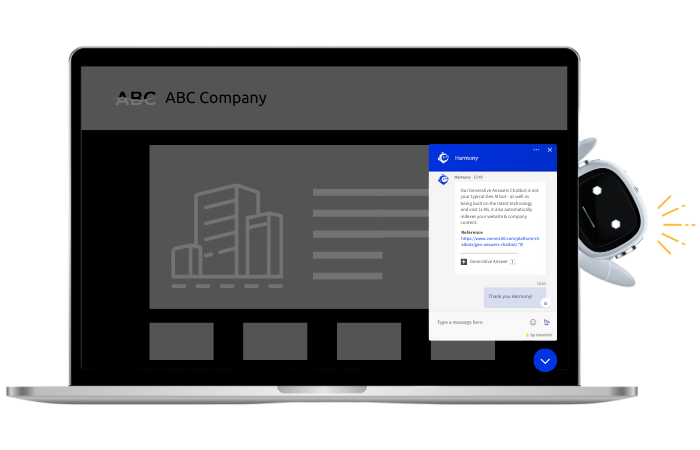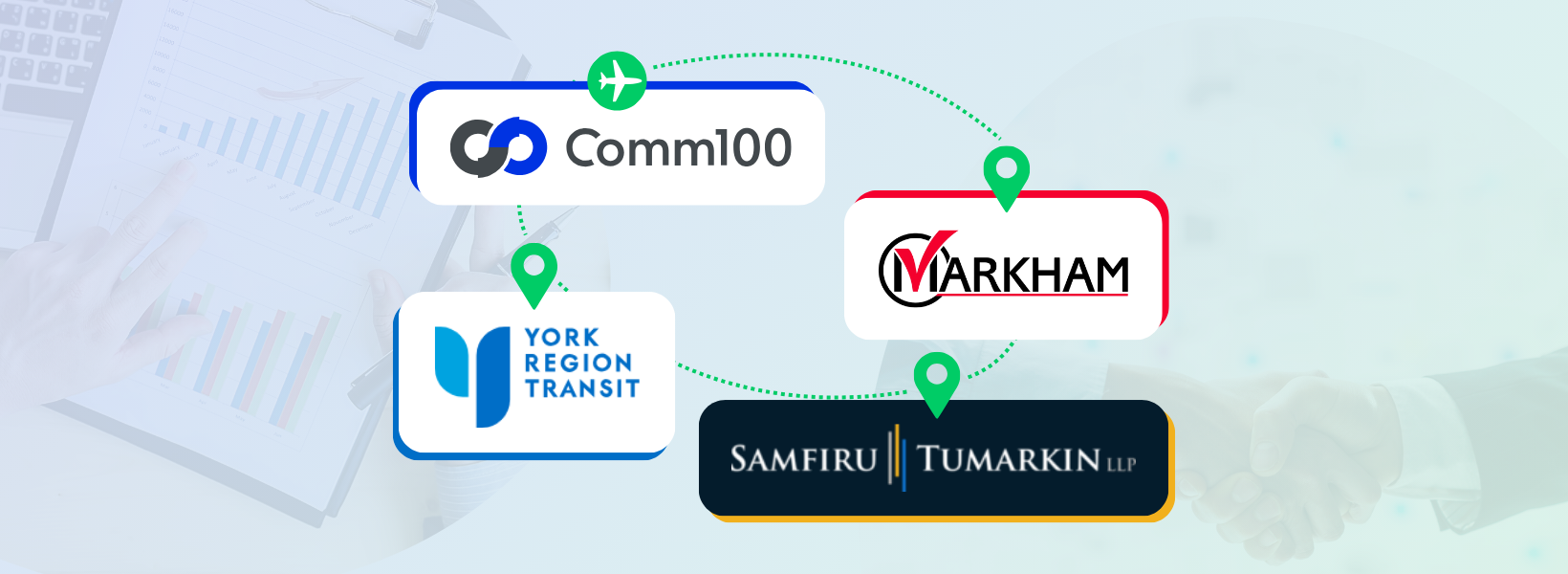Two months after the language learning model ChatGPT was released to the public, it broke world records. By February of 2023, the chatbot created by software company OpenAI had garnered 100 million unique visitors, making it the fastest-growing consumer app ever to have been released. While many internet users have logged on to try the technology out of curiosity, the business world is already being affected by this revolutionary new software.
The AI chatbot application can respond to written prompts to generate stories, essays, articles, answers to questions, code sequences, and even jokes and poems. For businesses, ChatGPT and other AI chatbots are providing transformative potential in the field of customer experience.
The advanced language learning capabilities of AI chatbots provide businesses with ample opportunities to improve customer experiences through automation and natural remote conversations that sound like they are from a human operator.
This article will look at what AI chatbots are and how they work. Then we will explore how they are transforming customer experience for businesses. And finally, we will investigate the unexpectedly rapid growth of AI chatbots in the customer experience field.
What are AI Chatbots?
A chatbot is any software program that conducts conversations with human users online. These conversations are usually, but not exclusively, conducted through written text messages. Chatbots can produce automated responses to frequently asked questions, reducing the wait time and cost of hiring a customer service agent to respond to customer inquiries.
When you introduce AI into this equation, you get advanced-level capabilities when it comes to conducting conversations with human users. An AI chatbot can comprehend human language, whether spoken or written and generate responses accordingly.
AI chatbots are products of the rapidly expanding machine learning development field. According to reports, the machine learning industry will reach nearly $210 billion by 2029, and AI chatbots are partially responsible for fueling this growth.
AI chatbots use Natural Language Processing (NLP), a subset of machine learning, to understand human language. NLP is used to train artificial intelligence on large language learning models. ChatGPT is one good example of an AI chatbot that draws from advanced large language learning models to produce sophisticated written responses.
Contemporary AI chatbots can compose written responses that sound convincingly like natural human language, making them invaluable for customer experience evolution.
The AI Chatbot That Talks Like You
Automate over 80% of all inquiries. Launch in 1 day. Powered by the latest GPT and vast LLMs.
Learn more
Solution
With their remarkable ability to process and synthesize huge data sets and impressive language skills, AI chatbots are quickly becoming vital to customer experience across industries.
The increasingly natural-sounding human language capabilities of AI chatbots make them an important tool for improving customer experience. Let’s look at the specific ways AI chatbots are doing just that. 、
Read more: Lean into Automation – Transforming Customer Service with AI & Human-Bot Harmony
Automating Routine Tasks
One of the primary functions of AI software is to automate everyday tasks, such as updating calendars, scheduling calls, or filling out forms.
By taking over the rote tasks that normally consume hours of an employee’s work day, AI software can allow human employees to focus on more complex subjects, such as addressing difficult customer service challenges or brainstorming ways to improve customer experience across the board.
Offering Personalized Recommendations
By analyzing customer data and current market trends, AI software can provide personal recommendations for customers that satisfy their precise needs. For example, a customer seeking a particular type of skincare product can interact with an AI chatbot, answering a series of questions with pre-programmed answers until the AI chatbot provides them with specific product recommendations that will suit their type of skincare issue.
In today’s marketplace, where hyper-personalization is a popular element of customer experiences, this highly specific recommendation for each individual can improve a customer’s experience with any brand.
24/7 Responses to Customer Queries
While paying employees around the clock is not always feasible for companies, that does not mean that customers will restrict their question-asking to reasonable work hours. And when a company has customers logging in all over the globe, customer service questions may come in at all times, day or night.
For example, if customers have questions about how to log a payment using an online service, there may be an urgent need to answer the inquiry as soon as possible. Collecting payments from customers directly offers many advantages, including increased security, reliability, convenience, and safety, so businesses must be available to answer these types of queries at any time of the day.
With AI chatbots, companies can provide 24/7 customer service that efficiently satisfies any customer need and provide speedy and accurate responses to all straightforward customer questions.
Demographics and Trend Prediction
In predicting customer behavior, companies can use AI software to better understand their target customers and audience demographics while improving customer experience simultaneously. With a better understanding of the subtle details that comprise a target audience, companies can better hone their product development, services, and personalized recommendations.
With advanced data analysis capabilities, AI chatbot software can monitor and analyze trends among specific audiences, allowing companies to respond with personalized, targeted marketing campaigns and product launches. And by keeping up with the latest trends and evolutions in customer experience preferences, companies can provide better service for their audiences.
Personalized Responses to Customer Inquiries
AI chatbots can provide personalized responses to customer inquiries, giving each customer the feeling that they are being recognized and listened to and that their needs are being heard, met, and respected. This is a positive effect across all sectors. For industries where sensitive and potentially vulnerable information may be exchanged, such as the healthcare industry, this is even more significant.
AI chatbots can help make customers and patients feel more comfortable. When healthcare companies use AI chatbot software to connect with patients, they can provide tailored communications that address individual needs and situations as they arise, drawing from patient files and preferences. AI chatbots can analyze communications in the past to better shape the conversation of the future, meeting customer needs.
Reduced Costs
By relying on AI chatbots to take care of rote daily tasks, companies can cut down on costs. Since this is a more efficient way of working, companies can save employee time, and therefore money, by employing AI chatbot software instead.
The Unexpected Growth of Customer Experience AI Chatbots
With so many benefits for companies across sectors, it may come as no surprise that the customer experience sector has seen rapid growth and widespread adoption of AI chatbot usage for customer experiences.
Since markets are more competitive now than ever, businesses are turning to AI-powered chatbot software to provide them with a necessary competitive edge. Studies show that by the end of 2023, as much as 70% of all customer conversations will be conducted by AI chatbots.
As mentioned previously, the popular AI chatbot ChatGPT broke world records when it was released, gaining one million users in just one week of its public existence, with that number increasing exponentially at a breathtakingly rapid pace.
By just two months after its public release, ChatGPT had gained over 100 million users. This is a great example of how businesses have begun to rely on and implement customer experience that utilizes AI chatbots. The rapid pace of growth has exceeded expert predictions, demonstrating that the field of customer experience is more than capable of adopting this technology.
Final Thoughts
AI chatbots are on track to completely transform how customer experience is implemented. Companies across all industries have already begun to embrace the radical capabilities that AI chatbots provide, as human users can communicate with these advanced-level artificial intelligence software programs.
Businesses can cut costs, increase efficiency, and free up employee time and energy to focus on complex matters by giving AI chatbots the tasks of monitoring data, analyzing behavior patterns, identifying demographics, and predicting customer trends. AI chatbots can automate routine tasks and provide 24/7 customer service. Customers can receive hyper-personalized responses and recommendations from AI chatbots that will improve their customer experience.
As AI chatbots become increasingly sophisticated and able to communicate with ever more convincing human-sounding language, businesses will continue to make use of AI technology to answer customer queries, streamline customer experiences, and deliver personalized services to individual customers around the globe.
The AI Chatbot That Talks Like You
Automate over 80% of all inquiries. Launch in 1 day. Powered by the latest GPT and vast LLMs.
Learn more
Solution






